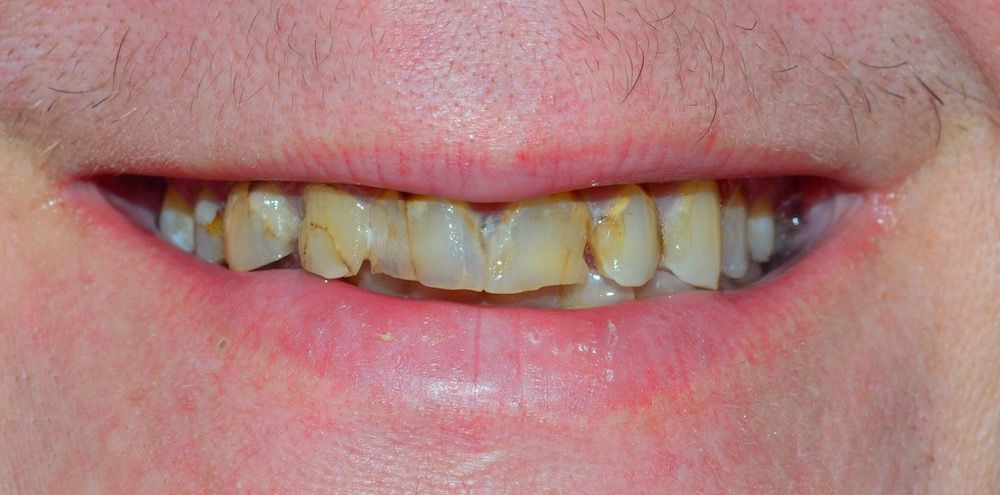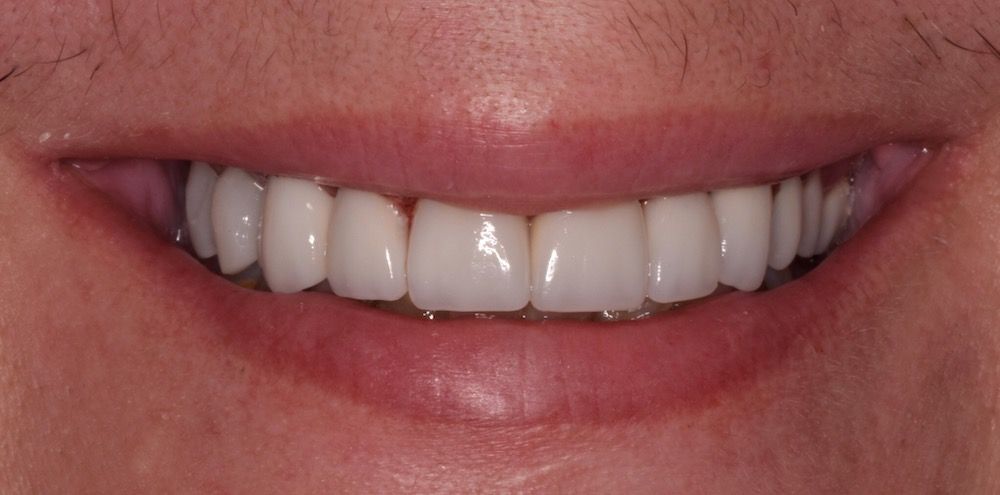Cosmetic Dentistry In Columbia, MD
Request An Appointment Today!
Cosmetic Dentistry
Cosmetic Dentistry Patient Testimonial
" I had some treatment on my teeth because I think my teeth are not completely crisp, so I came to Dr. Patel, and he explained to me what he was going to do. I had good experience with Dr. Patel, he was quick, efficient, and he delivered on what he promised. I could hardly believe they were my teeth! -Carolyn
Join Our Community!
Cosmetic Dentistry In Columbia, MD
Learn all about cosmetic dentistry in Columbia, MD, with Smile Savers. Cosmetic dentistry procedures utilize dental services to address cosmetic concerns, improving the look of one’s teeth, including chipped teeth, crooked teeth, or discolored teeth. While many cosmetic dental treatments also bolster oral health, the primary goal of cosmetic dentistry is enhancing one’s appearance. These cosmetic dentistry treatments can significantly impact a person’s life, boosting self-esteem for individuals who were once hesitant to show their gapped teeth or felt conscious of their cosmetic dental flaws.
Dr. Anuja Patel, a trusted cosmetic dentist, provides a wide range of cosmetic dentistry services, such as porcelain veneers, cosmetic bonding, and other quality cosmetic dentistry solutions, to the communities around Columbia, Maryland. With over three decades of expertise in dental restorations, cosmetic treatments, and various dental services, every patient receives top-notch dental care at our office. Smile Savers Dentistry is committed to ensuring you feel confident in your smile so you will have no reservations about your dental health and appearance.
Why Choose Smile Savers Dentistry?
Experience and Expertise
At Smile Savers Dentistry, you will benefit from Dr. Anuja Patel's expertise and extensive experience. Dr. Patel’s years of practice and dedication to staying updated on the latest advancements in dental care ensure you receive the highest quality treatment. Whether you need restorative dentistry, cosmetic dental treatment, or preventive care, you are in the hands of a skilled family dentist committed to your oral health needs.
Comprehensive Service
Smile Savers Dentistry provides a wide range of dental services to meet your oral health requirements. Whether you need routine professional teeth cleanings, complex dental procedures, or cosmetic dentistry treatments, our team offers individualized care tailored for patients of all ages.
State-of-the-Art Techonology
We invest in cutting-edge dental technology to offer our patients the most effective and advanced dental treatments. Our state-of-the-art facility features digital imaging systems, laser dentistry, and innovative techniques that enhance dental treatment accuracy, efficiency, and patient comfort.
Personalized Attention
At Smile Savers Dentistry, you’re more than just a patient—you’re part of our dental practice family. We take the time to listen to your concerns, understand your oral health needs, and create a customized treatment plan. Our team is dedicated to providing compassionate care in a warm and welcoming atmosphere.
Relaxing and Comfortable Enviorment
We understand that visiting the dentist can cause anxiety for some, which is why we strive to create a calm and stress-free environment. From our friendly dental team to our cozy treatment rooms, we ensure your visit is as comfortable as possible. Our focus is on making dental visits a positive experience for the entire family.
Patient Empowerment
We believe in empowering our patients with knowledge to make informed decisions about their dental health. Our team provides guidance on oral hygiene, explains treatment options, and helps you understand the importance of preventive care to maintain a beautiful smile and prevent tooth decay.
Commitment to Excellence
At Smile Savers Dentistry, we are committed to providing the best dental practice experience. We uphold the highest quality standards in our practice, from delivering top-tier dental services to maintaining stringent cleanliness and safety protocols. Whether you need cosmetic treatments, restorative dentistry, or routine dental care, we ensure you receive effective and professional care.
Check Our Patient Testimonials!
Our Cosmetic Dentistry Procedures Include
Our Other Services
Patient Reviews at
Smiles Savers Dentistry
Cosmetic Dentistry in Ellicott City, MD
If you’re interested in improving the appearance of your smile, contact Smile Savers Dentistry to find out how we can help using one of our Columbia Cosmetic Dentistry options. Call us to set up an appointment or set an appointment online .
Contact Us
Smile Savers is accepting new patients however, we DO NOT accept HMO's, Medicaid, or other State Insurance Programs. If you require financial assistance please contact our office regarding our membership plan and financing options.














